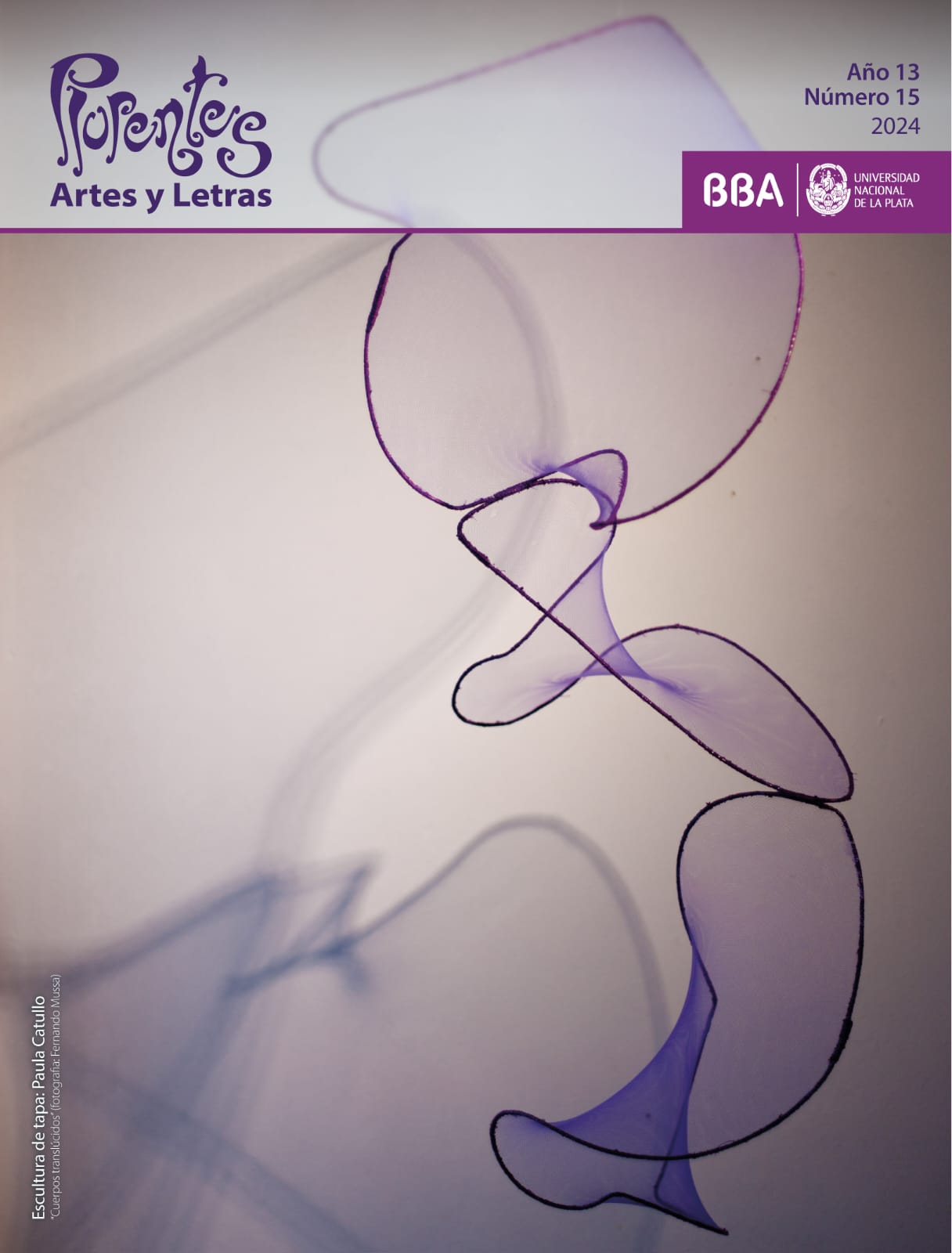Cats, rabbits, and the sphinx: Two debates on reading in the digital age
DOI:
https://doi.org/10.24215/18536212e084Keywords:
book, digital text, digital humanities, modalities of reading, Fabián CasasAbstract
With his article “Is Google Making Us Stupid?” (2008), Carr sparked a debate about the harmful effects that new technologies were beginning to have on readers in the digital age. Responses to this position highlighted the virtue of the new scenario in giving readers the freedom to choose what and how to read. This paper reviews the positions taken in the debate through the lens of the history of reading and analyzes reflections by writer Fabián Casas on new forms of writing and reading which can be interpreted in light of the northern debate.
Downloads
References
Abdala, V. (2020). “No regalen mis libros”: polémica por una página que sube obras que tienen derechos de autor. Diario Clarín. https://rb.gy/b4tisn
Acha, J. O. (2000). La renovación de la historia del libro: la propuesta de Roger Chartier. Universidad, Cultura y Sociedad, (3), 61-74.
Albarello, F. (2019). Lectura transmedia: leer, escribir, conversar en el ecosistema de pantallas. Ampersand.
Anders, G. (2011). La obsolescencia del hombre. PRE-TEXTOS.
Beller, J. (2006). The Cinematic Mode of Production. Darthmouth.
Benjamin, W. (1989). Discursos interrumpidos I. Taurus.
Carr, N. (2008). Is Google Making Us Stupid? What the Internet is doing to our brains. The Atlantic. https://www.theatlantic.com/magazine/archive/2008/07/is-google-making-us-stupid/306868/
Casas, F. (2006). Rita y Bertoni. El señor de abajo. https://elseniordeabajo.blogspot.com/2006/10/rita-y-bertoni.html
Casas, F. (2022). La supremacía Tolstoi, y otros ensayos al tuntún. Emecé.
Cavallo, G. (2004). Entre el volumen y el codex. La lectura en el mundo romano. En G. Cavallo y R. Chartier (Eds.), Historia de la lectura en el mundo occidental (pp. 95-134). Taurus.
Celis Bueno, C. (2017). The Attention Economy. Rowman & Littlefield.
Chartier, R. (1996). Del códice a la pantalla. Trayectorias de lo escrito. Quimera, (150).
Chartier, R. (2006). Materialidad del texto, textualidad del libro. Orbis Tertius: Revista de Teoría y Crítica Literaria, 11(12).
Cohen, M. (2006). Prosas de Estado y estados de la prosa. Revista Otra Parte, (8). https://www.revistaotraparte.com/op/literatura/prosa-de-estado-y-estados-de-la-prosa/
Griffey, H. (2018). The lost art of concentration: Being distracted in a digital world. The Guardian. https://www.theguardian.com/lifeandstyle/2018/oct/14/the-lost-art-of-concentration-being-distracted-in-a-digital-world
Kalpokas, I. (2021). Malleable, digital, and posthuman: A Permanently Beta Life. Emerald.
Kovač, M. y Phillips, A. (2022). Is this a book? Cambridge University Press.
McSpaden, K. (2015). You now have a shorter attention span than a goldfish. Time. https://time.com/3858309/attention-spans-goldfish/
Sadin, E. (2018). La siliconización del mundo: la irresistible expansión del liberalismo digital. Caja Negra.
Shirky, C. (2008). Why abundance is good: A reply to Nick Carr. Enciclopedia Britannica Blog. https://rb.gy/968ko7
Styles, E. (2006). The psychology of attention. Psychology Press.
Zalba, M. E. (2003). De lectores y prácticas lectoras: la multiplicidad de pactos de lectura en los albores del tercer milenio. Confluencia, 1(3). https://bdigital.uncu.edu.ar/117
Published
How to Cite
Issue
Section
License
Copyright (c) 2024 Mauro Kein

This work is licensed under a Creative Commons Attribution-NonCommercial-ShareAlike 4.0 International License.
Acorde a estos términos, el material se puede compartir (copiar y redistribuir en cualquier medio o formato) y adaptar (remezclar, transformar y crear a partir del material otra obra), siempre que a) se cite la autoría y la fuente original de su publicación (revista y URL de la obra), b) no se use para fines comerciales y c) se mantengan los mismos términos de la licencia.





















